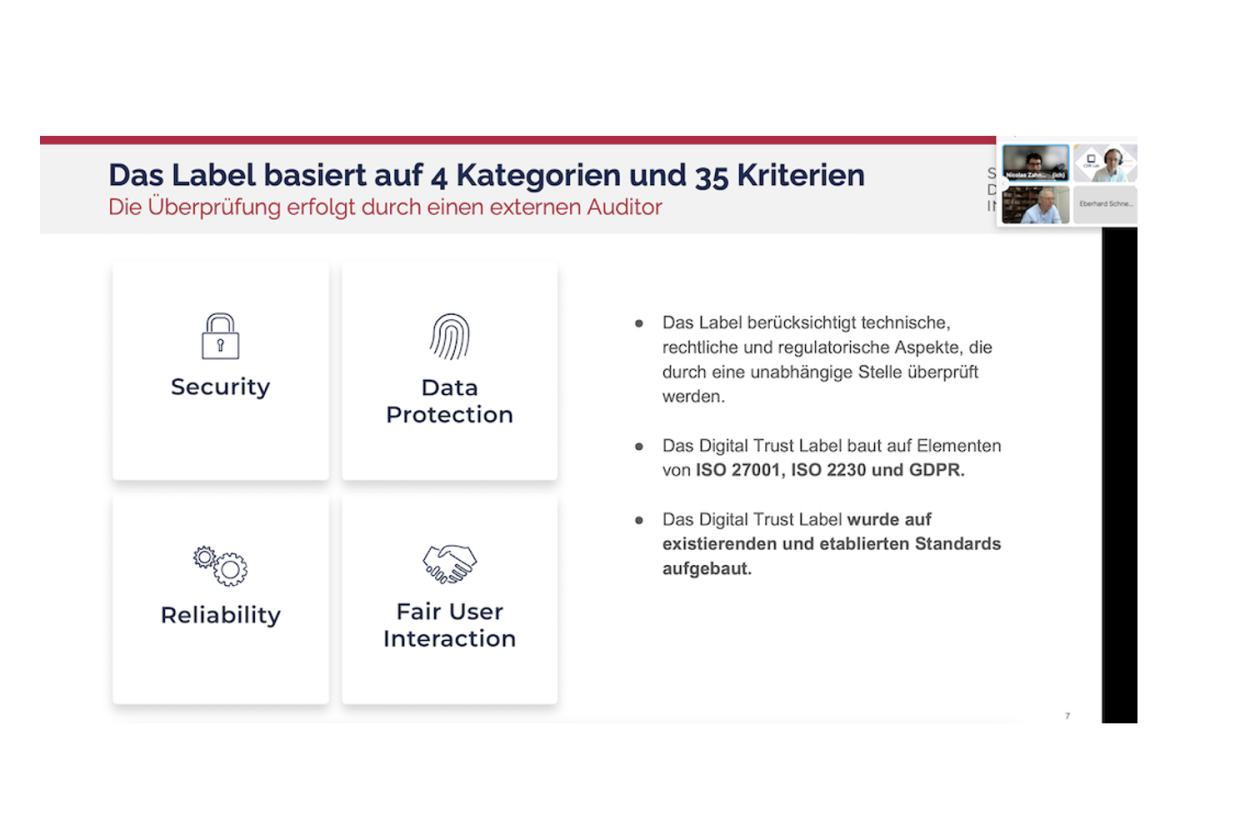CDR Lab: Standards, Regulations, and Indicators
Nicolas Zahn • March 2022

The CDR Lab is a participatory process in which partners from a wide range of sectors come together and jointly shape digital corporate responsibility. In several events per year, current topics of corporate digital responsibility are curatively prepared and presented.
This week, a workshop on the questions of standards, regulations, and indicators brought together practitioners and researchers from Germany, Austria and Switzerland (DACH).

The presentations and following discussions showed some common themes that we have also encountered during the development of the Label:
- There is no denying that questions of CDR and digital ethics are gaining importance, not only reflected in more regulatory activity – in particular on the European level – but also in more initiatives from experts and industry for standards and frameworks.
- Globally, there is still a misperception that ethics is simply “red-tape”. Consensus among the participants of the workshop shows the opposite: tackling ethical concerns early on when designing and developing digital services is supporting innovation instead of blocking it.
- It is clear that digital technologies hold huge potential for societies. Therefore, it is important to point out that work on CDR and digital ethics is not meant to reduce innovation but rather to ensure maximal benefits and minimised risks. The presentation on the DIN & DKE Roadmap showed that a clear risk-assesment is needed and not all digital services should be equally affected by regulation just as not all standards make sense for all digital services. A targeted approach focusing on high-risk applications is much more helpful.
- With a growing number of initiatives following similar goals, coordination and harmonisation become important concerns. Regular exchange among various groups, such as through these workshops, helps to identify overlaps and potential for collaborations.
- Collaboration among stakeholders is key to ensure that standards can actually be implemented and that they achieve the desired goals, e.g. empowering users to make informed decisions. The presentation about IEEE 7000 made this clear as the team behind the project – just as was the case with our Digital trust Label – collaborated with pilot partners from the beginning to ensure the practicality of the standard.
- We are breaking new ground. Through the discussions it became clear, that from frameworks, standards, and projects such as the Digital Trust Label, we are exploring new territory which also means creating new concepts. E.g. education for many engineers does still not include or focus on ethical concerns leading to a lack of desired profiles.
A clear commitment to Digital Responsibility
Against this backdrop, the Digital Trust Label was introduced as a tool for organisations to measure their digital responsibility and clearly communicate their commitments towards end-users. As the Label is already live on the market, interest by other participants was high in gaining a better understanding of how the Label works, how it was developed and what insights have been gathered. We will be sure to regularly update the community about our learnings.
Events such as the CDR Lab workshop are also welcome opportunities for the Swiss Digital Initiative to receive expert feedback. In this regard, the workshop proved helpful as the discussion with other participants after the presentation yielded inspiration for potential adjustments to the Label criteria catalogue, e.g. by including other elements typically associated with responsible behaviour such as the environment.